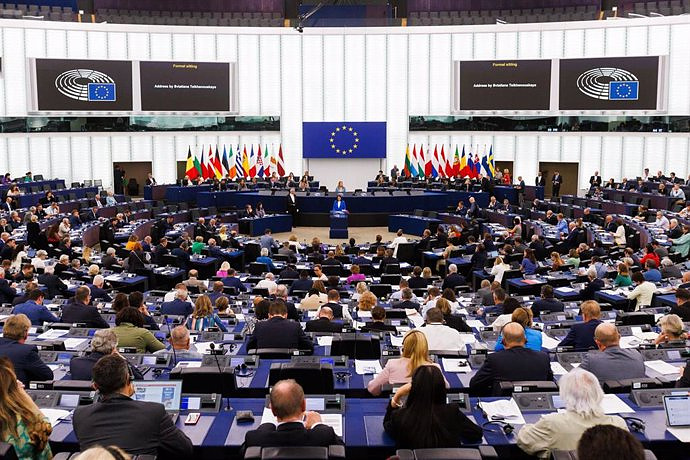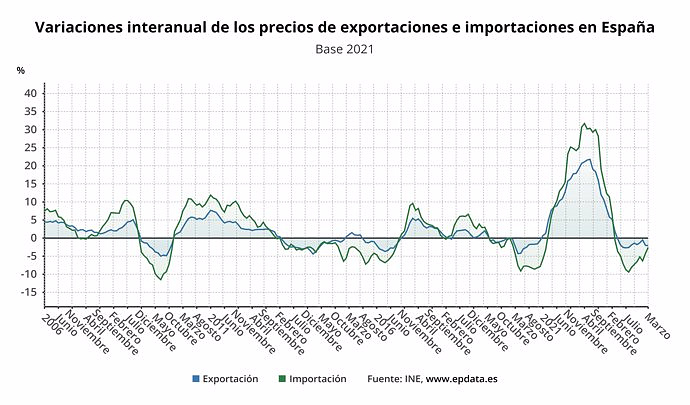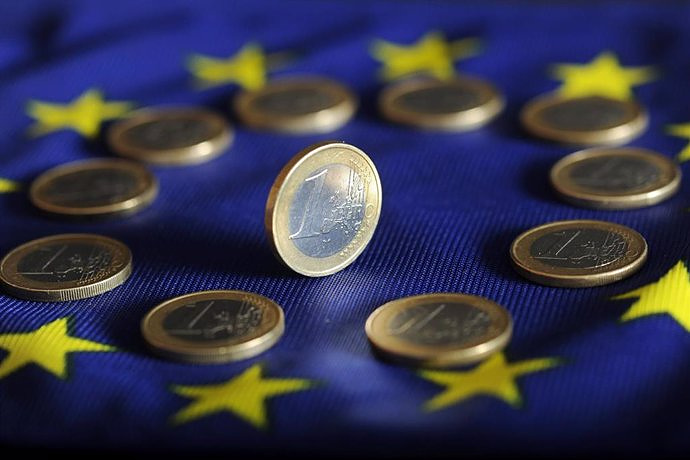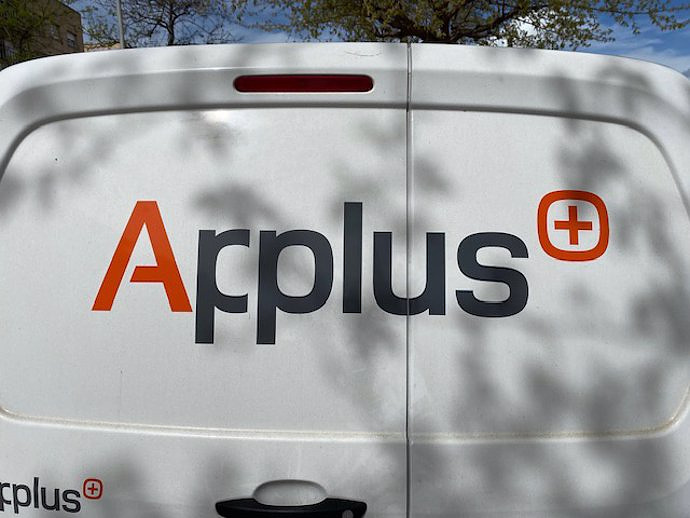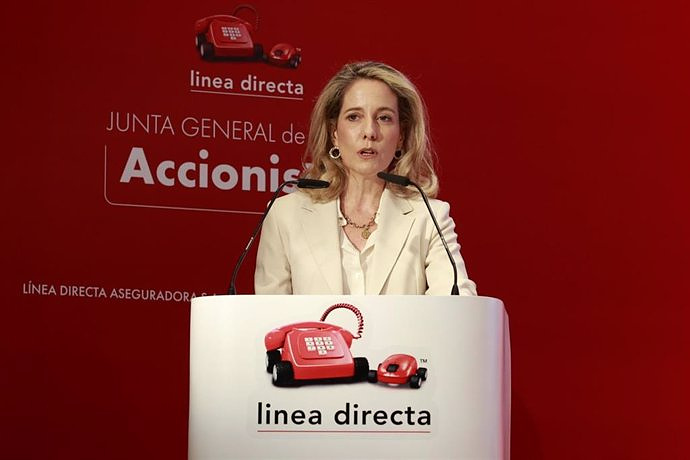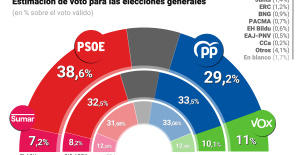The plenary session of the European Parliament has requested this Wednesday an "independent evaluation" of the Amnesty Law that the PSOE agreed with ERC and Junts to ensure the investiture of Pedro Sánchez, while regretting the long blockade of the General Council of the Judiciary ( CGPJ) that Brussels demands be urgently renewed and then its election system be reformed.
This is stated in a paragraph approved by a show of hands by the plenary session of the European Parliament meeting in Strasbourg (France) that has been included in the report - later adopted with 374 votes in favor, 113 against and 45 abstentions - on the annual evaluation that the European Commission carries out on the rule of law in the 27 Member States.
In this way, the MEPs say they "take note" of the processing of the Amnesty Law in Spain, to which there are no references in the annual evaluation that Brussels presented last July, and they echo the "questions, opinions and concerns expressed by various stakeholders", including associations of judges, prosecutors, lawyers and academics, civil society and the general public.
The position of the European Parliament points out that, in this context, the law "merits an independent evaluation" and they ask the Government for "total transparency" when offering the necessary information to the European institutions.
However, they admit that the controversial rule is already being examined by both the European Commission and the Venice Convention, the latter a committee outside the EU that acts in this case at the request of the Senate.
The text also recalls that the annual report of the European Commission makes specific recommendations to Spain regarding concern about the blockade of the CGPJ and the urgency of its renewal. For this reason, the European Parliament "regrets the prolonged situation of blockade" of the governing body of the judges.
More generally, the European Parliament document on democratic health in all EU countries calls for action against the erosion of European values and, in addition to Spain, points out systemic risks for the rule of law in France, Greece , Slovakia, Malta and Hungary.
"The Commission's rule of law report must treat Member States objectively and fairly. Political pressures from governments must not play a role, because Europeans have the right to know the state of the rule of law wherever they live," has warned the rapporteur, the Dutch liberal Sophie in 't Veld.
"The situation is serious in some Member States and there is concern of varying severity in many others," warned the MEP, who asked not to look the other way but to "raise your voice" to denounce it and urged the European Commission to be "less timid" in her comments to member countries.
The also liberal Maite Pagazaurtundúa, Cs MEP and vice president of the European Parliamentary Commission on Civil Liberties (LIBE), has denounced in plenary session the "very serious degradation" of the situation in Spain and, after recalling the reform of the Penal Code to suppress the crime of sedition and reducing penalties for embezzlement, has referred to the 'Koldo case' as "a multimillion-dollar corruption scandal that the European Anti-Fraud Office will investigate."
"The corruption scandal that has broken out in Spain and that affects the Socialist Government has serious European implications that will emerge," warned PP MEP Javier Zarzalejos.
"It is not the rule of law to agree with criminals to reform the criminal law, it is not the rule of law to declare that the Attorney General of the State depends on the Government, it is not the rule of law to amnesty embezzlers nor is it the rule of law nor is it European to exchange impunity for votes to remain in the Government," the 'popular' MEP stressed.
COURT OF ACCOUNTS
The opinion of the European Parliament coincides with the publication also this Wednesday of a report by the Court of Auditors of the European Union on the same annual evaluation of the European Commission on the rule of law and with which European auditors regret that governments barely pay attention. to the Brussels recommendations.
The annual evaluation of the Community Executive is not binding on the Member States and is limited to offering updated information on the situation in each country, although in the last two editions it has included specific recommendations for countries that have barely been applied, the auditors point out.
In the case of Spain, the main concern included in the recommendations is the blockage of the CGPJ and the need for its renewal to be addressed as a priority to, "immediately afterwards", address the process to reform the system of election of members of the governing body of judges.

 Exploring Cardano: Inner Workings and Advantages of this Cryptocurrency
Exploring Cardano: Inner Workings and Advantages of this Cryptocurrency Seville.- Economy.- Innova.- STSA inaugurates its new painting and sealing hangar in San Pablo, for 18 million
Seville.- Economy.- Innova.- STSA inaugurates its new painting and sealing hangar in San Pablo, for 18 million Innova.- More than 300 volunteers join the Andalucía Compromiso Digital network in one month to facilitate access to ICT
Innova.- More than 300 volunteers join the Andalucía Compromiso Digital network in one month to facilitate access to ICT Innova.-AMP.- Ayesa acquires 51% of Sadiel, which will create new technological engineering products and expand markets
Innova.-AMP.- Ayesa acquires 51% of Sadiel, which will create new technological engineering products and expand markets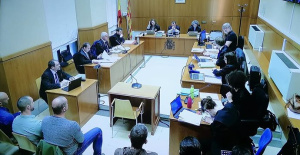 Sentences of up to 7 years for four police officers for illegal detention and injuries to a young man in Barcelona
Sentences of up to 7 years for four police officers for illegal detention and injuries to a young man in Barcelona They investigate in Jaén the death of a six-year-old boy whose mother shows signs of self-harm
They investigate in Jaén the death of a six-year-old boy whose mother shows signs of self-harm The judge orders Rubiales to appear in court once a month and ask for permission if he travels abroad
The judge orders Rubiales to appear in court once a month and ask for permission if he travels abroad Scotland's First Minister resigns after the breakdown of the Government coalition
Scotland's First Minister resigns after the breakdown of the Government coalition How Blockchain in being used to shape the future
How Blockchain in being used to shape the future Not just BTC and ETH: Here Are Some More Interesting Coins Worth Focusing on
Not just BTC and ETH: Here Are Some More Interesting Coins Worth Focusing on They create a bank of machinery sounds to prevent breakdowns through artificial intelligence
They create a bank of machinery sounds to prevent breakdowns through artificial intelligence UPV students build a prototype of a wooden house to move to Equatorial Guinea
UPV students build a prototype of a wooden house to move to Equatorial Guinea The UA opens the call for the Impulso 2024 Awards for the best innovative business initiatives
The UA opens the call for the Impulso 2024 Awards for the best innovative business initiatives ALI, virtual assistant from Alicante, internationally recognized by the OECD
ALI, virtual assistant from Alicante, internationally recognized by the OECD A million people demonstrate in France against Macron's pension reform
A million people demonstrate in France against Macron's pension reform Russia launches several missiles against "critical infrastructure" in the city of Zaporizhia
Russia launches several missiles against "critical infrastructure" in the city of Zaporizhia A "procession" remembers the dead of the Calabria shipwreck as bodies continue to wash up on the shore
A "procession" remembers the dead of the Calabria shipwreck as bodies continue to wash up on the shore Prison sentences handed down for three prominent Hong Kong pro-democracy activists
Prison sentences handed down for three prominent Hong Kong pro-democracy activists ETH continues to leave trading platforms, Ethereum balance on exchanges lowest in 3 years
ETH continues to leave trading platforms, Ethereum balance on exchanges lowest in 3 years Investors invest $450 million in Consensys, Ethereum incubator now valued at $7 billion
Investors invest $450 million in Consensys, Ethereum incubator now valued at $7 billion Alchemy Integrates Ethereum L2 Product Starknet to Enhance Web3 Scalability at a Price 100x Lower Than L1 Fees
Alchemy Integrates Ethereum L2 Product Starknet to Enhance Web3 Scalability at a Price 100x Lower Than L1 Fees Mining Report: Bitcoin's Electricity Consumption Declines by 25% in Q1 2022
Mining Report: Bitcoin's Electricity Consumption Declines by 25% in Q1 2022 Oil-to-Bitcoin Mining Firm Crusoe Energy Systems Raised $505 Million
Oil-to-Bitcoin Mining Firm Crusoe Energy Systems Raised $505 Million Microbt reveals the latest Bitcoin mining rigs -- Machines produce up to 126 TH/s with custom 5nm chip design
Microbt reveals the latest Bitcoin mining rigs -- Machines produce up to 126 TH/s with custom 5nm chip design Bitcoin's Mining Difficulty Hits a Lifetime High, With More Than 90% of BTC Supply Issued
Bitcoin's Mining Difficulty Hits a Lifetime High, With More Than 90% of BTC Supply Issued The Biggest Movers are Near, EOS, and RUNE during Friday's Selloff
The Biggest Movers are Near, EOS, and RUNE during Friday's Selloff Global Markets Spooked by a Hawkish Fed and Covid, Stocks and Crypto Gain After Musk Buys Twitter
Global Markets Spooked by a Hawkish Fed and Covid, Stocks and Crypto Gain After Musk Buys Twitter Bitso to offset carbon emissions from the Trading Platform's ERC20, ETH, and BTC Transactions
Bitso to offset carbon emissions from the Trading Platform's ERC20, ETH, and BTC Transactions Draftkings Announces 2022 College Hoops NFT Selection for March Madness
Draftkings Announces 2022 College Hoops NFT Selection for March Madness